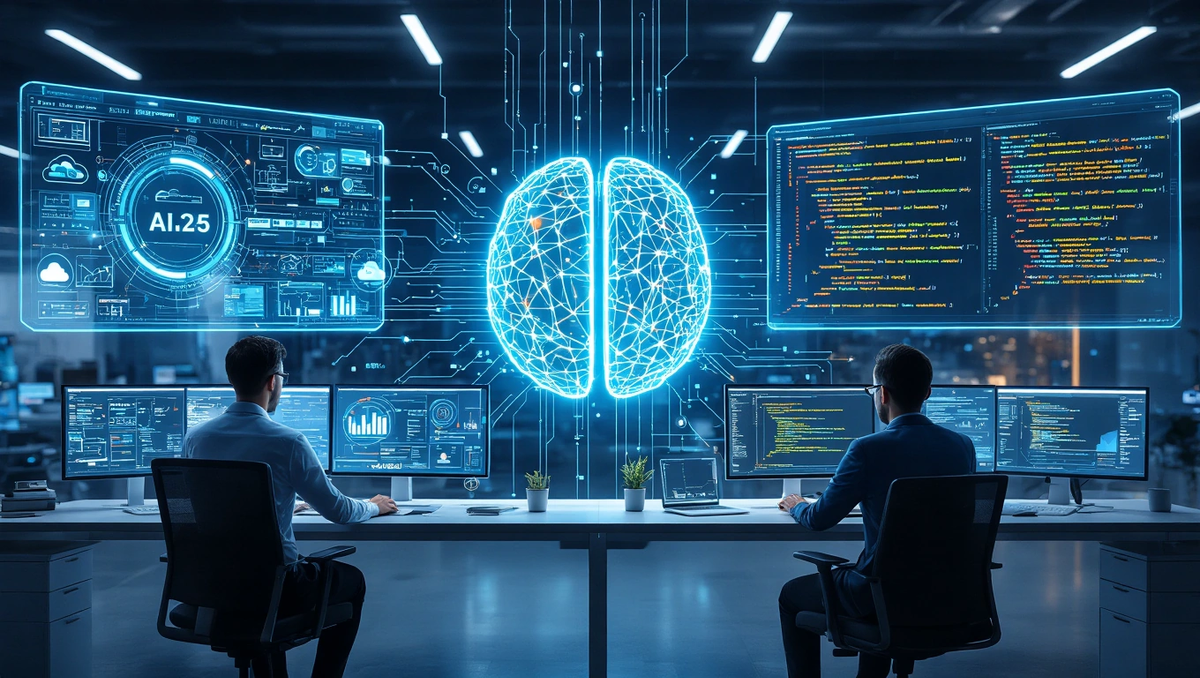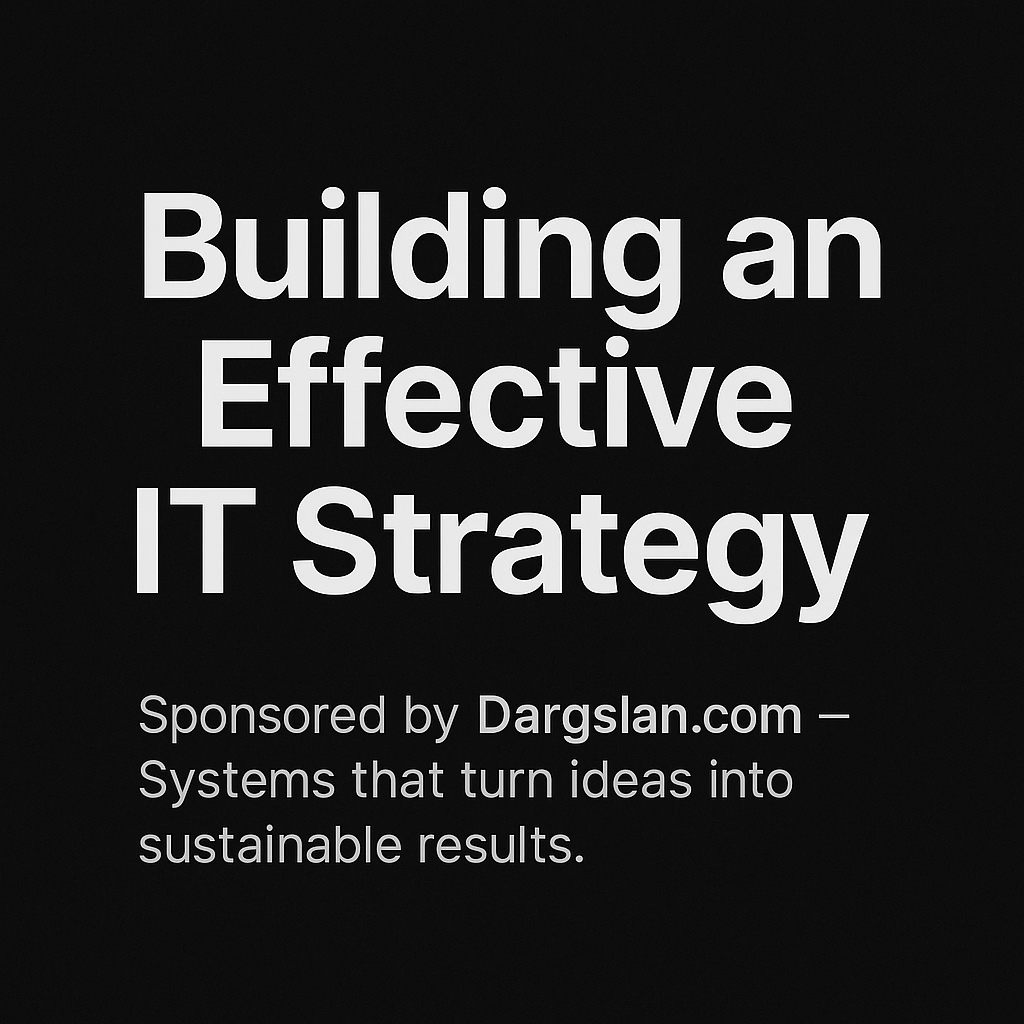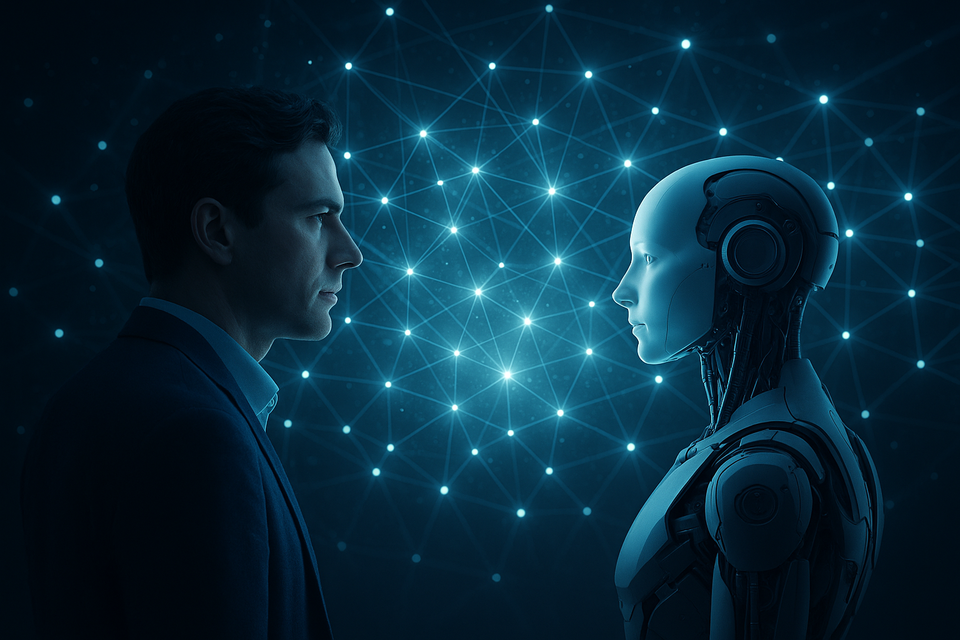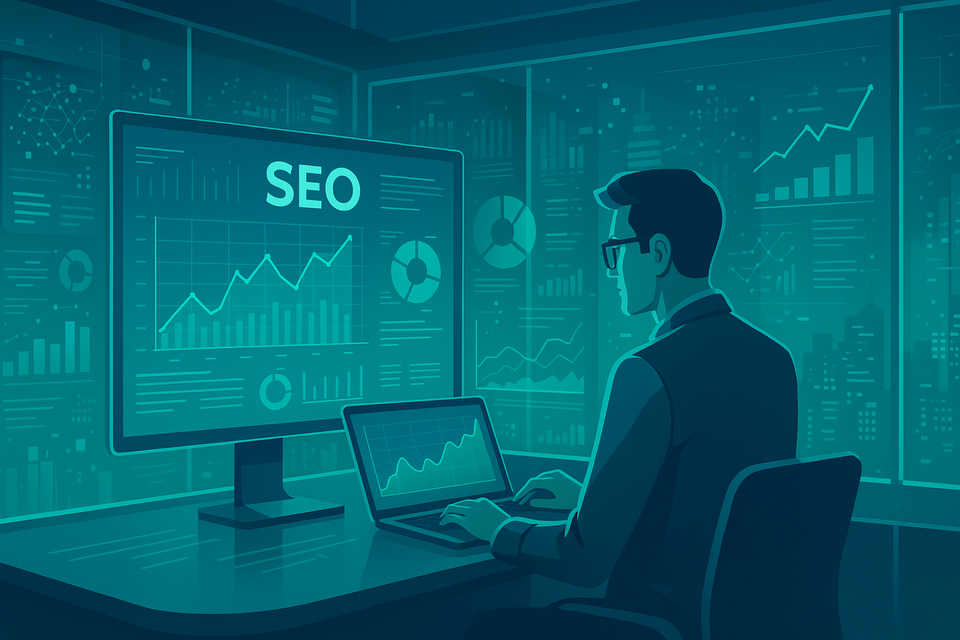How AI Is Changing Everyday Work for IT Professionals and Developers in 2025
AI has become every IT professional’s invisible co-worker. In 2025, developers code alongside AI copilots, and IT admins manage self-healing, predictive systems. This in-depth article explores how artificial intelligence is transforming technical roles and what skills matter most in this new era.

How automation, predictive analytics, and AI copilots are transforming the daily workflow of system administrators and software developers.
A New Era of Collaboration Between Humans and Machines
Five years ago, artificial intelligence was a buzzword. In 2025, it’s an invisible co-worker — always on, always learning, and always watching your screen (hopefully in a good way).
Whether you’re an IT Administrator maintaining cloud systems or a Developer writing complex code, AI has quietly become part of your daily toolkit. It’s not replacing you — it’s amplifying you.
1️⃣ Developers Now Code with AI, Not Alone
Gone are the days of blank screens and coffee-fueled debugging marathons.
Developers now work side by side with AI pair programmers — tools that can:
- Suggest full functions based on a single comment
- Automatically fix syntax and performance issues
- Predict which part of your code might break after an update
AI doesn’t just write code; it helps design better architecture, enforce security best practices, and even generate tests before the developer hits “commit”.
In 2025, the best developers are not the ones who code fastest — but those who guide AI tools effectively. Prompt engineering, contextual thinking, and ethical awareness are the new core skills.
2️⃣ IT Administrators Use Predictive AI for Stability and Security
For IT Admins, AI has become the silent guardian of uptime.
Machine learning models now:
- Predict hardware failures before they happen
- Auto-heal cloud services by rolling back unhealthy instances
- Monitor network traffic for anomalies 24/7
- Generate compliance and security reports automatically
Instead of fighting fires, IT admins in 2025 spend more time training their AI assistants — teaching them what a real incident looks like, fine-tuning alerts, and defining “normal behavior” for systems.
The result?
Less stress, fewer false alarms, and much stronger cybersecurity.
3️⃣ The Rise of the Hybrid Role: “AI Ops Engineer”
Between developers and administrators, a new hybrid position has emerged: AI Ops Engineer — someone who understands both infrastructure and code, but also knows how to leverage AI to automate, predict, and optimize everything.
These professionals build self-healing systems, automated workflows, and smart pipelines.
They bridge the gap between IT operations, DevOps, and AI development — a combination that’s now one of the most in-demand skillsets of the decade.
4️⃣ Fewer Routine Tasks, More Creative Thinking
Both Devs and Admins report that AI has cut repetitive work by 60–80%.
No more:
- Manually restarting services
- Writing boilerplate code
- Searching Stack Overflow for the tenth time
Instead, professionals are focusing on:
- Designing scalable systems
- Improving user experience
- Strengthening cybersecurity
- Innovating faster
The irony? The more AI takes over repetitive work, the more human creativity becomes the key differentiator.
5️⃣ Ethical AI Is Now Everyone’s Job
AI is powerful — but not neutral. Developers must consider bias, data privacy, and ethical design in every new system they build.
Admins must verify that monitoring and automation don’t violate privacy or compliance rules.
Every tech professional in 2025 is, in some sense, an AI ethicist.
Companies that ignore this responsibility risk not only reputational damage but also legal consequences. The smartest organizations now have AI Review Boards — teams that audit and monitor how AI decisions are made.
6️⃣ Continuous Learning Is Mandatory
AI evolves faster than any human skill.
A tool you mastered six months ago might already be obsolete.
That’s why IT professionals now spend at least 4–6 hours a week learning new frameworks, testing AI assistants, or participating in sandbox environments.
The era of “I finished school, now I work” is gone.
Welcome to “I work, therefore I learn.”
7️⃣ The Human Edge: Emotional Intelligence
While AI handles logic and speed, the human edge is empathy, communication, and strategic thinking.
AI can generate a perfect script or configuration — but it cannot understand why a user is frustrated, or how to translate business pain into a technical solution.
That’s why emotional intelligence, teamwork, and ethical awareness are now as valuable as coding itself.
📈 What This Means for 2025 and Beyond
| Role | Before AI | With AI (2025) |
|---|---|---|
| Developer | Writes, tests, and debugs manually | Co-codes with AI, automates testing, focuses on logic and architecture |
| IT Administrator | Monitors, patches, troubleshoots | Uses predictive AI, automates monitoring, focuses on reliability |
| DevOps Engineer | Builds pipelines, monitors CI/CD | Implements AI-driven pipelines with self-healing capabilities |
| Security Specialist | Manually detects anomalies | Uses AI-driven threat detection and behavioral analytics |
| AI Ops Engineer | — (new role) | Designs intelligent automation and self-optimizing infrastructure |
🧭 The Bottom Line
AI is not coming for your job — it’s coming for your routine.
The professionals who adapt, learn, and collaborate with intelligent tools will not just survive — they will lead.
2025 belongs to those who know how to combine human judgment with machine precision.
🌐 Explore More
Want to stay ahead in tech, automation, and future IT careers?
👉 Visit dargslan.com for more in-depth insights, book resources, and guides for IT professionals and developers.




